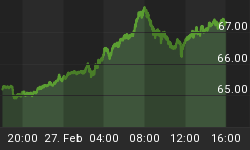Why read: To test the contemporaneous views I expressed four years ago, to observe similarities and differences then and now, and to determine if you agree with my current views.
Commentary then: On February 14, 2009 I reported as follows on a Reuters article titled 'U.S. consumers, economists unanimously grim' published the day before.
It begins by stating (paraphrased) 'Reports Friday showed U.S. consumers and professional forecasters have cast off the last remnants of economic optimism, as they confronted the grim reality of a long and deep recession'.
The article goes on to say "The U.S. economy will shrink a whopping 5.2 percent in the first quarter on an annualized basis, its worst performance since 1982, according to a quarterly forecasting survey published by the Philadelphia Federal Reserve', and that U.S. consumer confidence fell to its lowest in three months in February (56.2 down from 61.2 in January according to a Reuters/University of Michigan study). This in circumstances where "nearly two-thirds anticipated that the downturn would last five more years".
I keep asking myself (in 2009) why 'professional forecasters' didn't figure out this out by at least the fall of 2005 - particularly if they were living in the U.S. and observing first hand what was happening at that time.
In September 2005 I concluded, based on conversation I then had and simple studies I then did, that U.S. consumption was being driven to a significant degree by U.S. homeowners borrowing against their houses and spending the proceeds on cars, refrigerators, house improvements - you name it. I concluded U.S. house prices could not go up forever, and that at some point U.S. consumers - and the U.S. economy - would have to pay for the 'rob Peter to pay Paul' environment that existed back then. Acting on this conclusion I converted my investments to precious metals, oil & gas and cash from then until the spring of 2008.
My ongoing question is this (in 2009): I am not a 'professional forecaster'. I am a chartered accountant (in U.S. parlance a CPA). How in the world if I could figure it out when all these 'professional forecasters' didn't?
The horse is out of the barn and running fast. The important question for me is whether forecasters, economists, and the like are going to be better in their forecasting going forward than they have been in the past - which I have no reason to seriously believe, since they are the same people with the same intellect and biases. If I am right in this, I suggest all readers of this post think seriously for themselves going forward, and discount much of what 'forecasters' and other 'experts' write and say.
Commentary now: I continue to wonder about what of a lot of economists are saying today, which really means I continue to wonder what fundamental thesis they work from. I continue to think that a good number of economists are:
-
'book-learners' with comparatively little or no practical 'real world' experience; and,
-
locked-into a fundamental thesis founded in the concept that history must repeat itself irrespectively of whether the universe they are commenting on has grown or has changed in nature.
While some economists clearly 'got it' prior to 2008, I think more economists should have been more predictive of the events that culminated in the 2008 financial crisis, and that crisis itself. As a generalization, from which there clearly are exceptions, in mid-2012 most economists don't sound very different to me now than they did in 2007.















